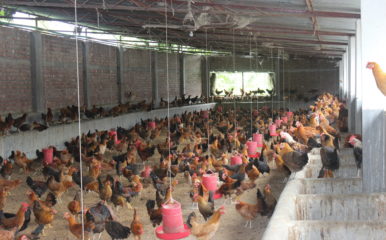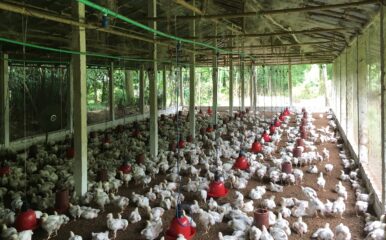
Perspectives in bridging science and social science
Published on 11/07/2024

GrumpyBeere/Pixabay
The discipline of Public Health, well established in its academic and applied dimensions through the 20th century, continues to display a wide range of language that reflects the diversity of perspectives within it. Terms such as Preventive Medicine, Social Medicine, Preventive and Social Medicine, Community Health and International Health used in the 19th and 20th centuries have seen a shift to greater use of Community Medicine, Public Health or Global Health.
One Health and Planetary Health are the most recent additions to this vocabulary.
The differing terms arose variously at particular historical and geographical junctures or to denote a specific focus considered central. All continue to be in use to varying extent – even now, sometimes interchangeably and sometimes even as components of what is still called Public Health.
This plethora of nomenclature can be viewed as either a fragmentation of the discipline or a plural range of perspectives that enrich it. Certainly, some shared understanding of the relationship of these terms would be useful to convey the identity of the discipline to its scholars and practitioners, policymakers and implementers, and the public.
A more self-reflective approach may also strengthen the discipline’s outputs, both academic and applied.
Public Health and development
While Social Medicine has been a European construct, Public Health was more of a North American articulation. The communicable diseases and epidemics of the 19th century brought focus to environmental factors as determinants, while their differential distribution across socioeconomic sections was also recognised.
More recently, Social Epidemiology, Eco-Social Epidemiology and Social Determinants of Health have brought social science concepts into epidemiological theory and methods. Health Systems Research and Policy Studies relate to economics, management science, sociology, anthropology and political science among others. Thus, social science research in health-related fields and the use of social science concepts and methods in Public Health became commonplace. Given the subject matter of Public Health, it must integrate biomedical, clinical, epidemiological and health care systems issues that include the environmental, social, economic, political, cultural, technological and organisational dimensions of populations.
Bridging disciplines
So what theoretical perspectives are relevant to bridge across all these disciplines? What kind of interventions need to be designed that would holistically address the various dimensions to effectively improve population health? What kind of pedagogy is required to develop the required skills and thinking approach?
These are some of the questions we plan to address through a webinar series, ‘Interdisciplinary Public Health in the 21st Century: Bridging Science and Social Science Dimensions’, being held to mark the Golden Jubilee of the Centre of Social Medicine and Community Health at Jawaharlal Nehru University, New Delhi.
The first webinar will explore the theme ‘Defining the Contours of Public Health’ and is being organised collaboratively by the Centre with the Centre for Community Medicine, All India Institute of Medical Sciences, New Delhi. The second webinar, in collaboration with the National Institute of Epidemiology is on the theme of ‘Epidemiology and the Social Sciences’. The kick-off event is the First People’s Health Oration on 13 July by Professor Frances Baum, Professor of Health Equity at The Stretton Institute, University of Adelaide.
The webinar series marks the closing of the Golden Jubilee celebrations that were delayed on account of the COVID-19 pandemic. The Centre of Social Medicine and Community Health was started in 1971 with the mandate of evolving the contours of the discipline to the Indian context, with all its diversity and with special attention to vulnerable populations. The challenges of moving to a more sustainable development, with decolonisation of knowledge, in a way that benefits vulnerable people more specifically and ensures improved population health in general, is of great concern in contemporary times for both low- and middle-income countries but also high-income countries too.
The One Health Poultry Hub, recognising that the global demand for chicken meat and eggs is escalating and the challenge ahead is to promote production in a safer and more sustainable way, has consistently sought to place people centre stage in its quest for a holistic understanding of poultry and pathogens.


